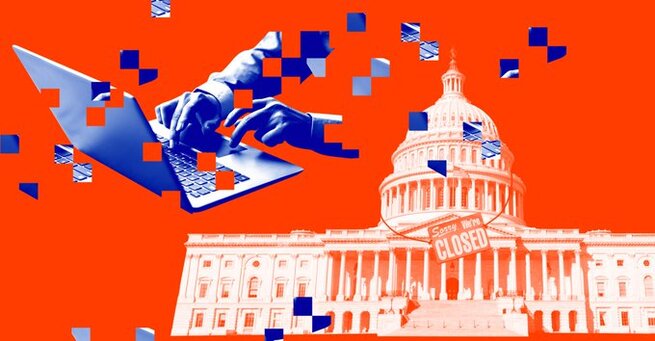Alerts

DC’s shutdown is hurting government tech workers — and everyone else who depends on their work to keep vital digital systems running. Federal innovation projects have stalled, funding pipelines are frozen, and thousands of skilled technologists are facing uncertainty about their roles and pay.
Government technology has long been the invisible engine behind essential public services — from student aid and healthcare systems to cybersecurity and data protection. As the shutdown drags on, the human and technical costs are becoming impossible to ignore.
For many federal technologists, the current pause echoes memories of past shutdowns. Kin Lane, a former Presidential Innovation Fellow, recalls how the 2013 shutdown forced him out of a job he loved. Lane worked on the Free Application for Federal Student Aid (FAFSA) — a project that impacts millions of students every year.
He remembers the deep satisfaction of improving a system that directly affected his own family. “That process working or not working, the privacy, the security … just equipping the next generation year after year,” he says. Yet the shutdown left him with no income and no choice but to leave DC, a reality that many are facing once again.
DC’s shutdown is hurting government tech workers — and everyone else relying on public digital infrastructure. The disruption halts progress on everything from cybersecurity updates to cloud modernization. It’s not just about delayed paychecks — it’s about delayed innovation.
Federal tech teams manage tools that secure taxpayer data, prevent fraud, and ensure public access to services. Every day of downtime increases risks, slows deployments, and puts decades of digital progress at stake. Projects to streamline services like the IRS portal or healthcare.gov have been put on indefinite hold.
The damage isn’t confined to Washington. Contractors, startups, and local governments that partner with federal agencies are also feeling the strain. With contracts suspended and communication frozen, tech ecosystems tied to government innovation are grinding to a halt.
Small businesses that rely on federal grants or procurement are among the first to feel the economic pinch. The result: lost income, talent drain, and diminished public trust in digital government.
Many who work in public-sector technology describe it as a calling. They join to modernize outdated systems, bring transparency to government processes, and serve citizens through innovation. Yet, without stable funding or legislative support, that mission is undermined.
“People come to government tech because they want to make a difference,” says one federal contractor. “But it’s hard to innovate when the lights keep going off.”
Some former government tech employees are stepping up to fill the void. Networks of ex-federal technologists are sharing resources, offering financial aid, and volunteering their expertise to help affected colleagues.
This informal safety net is helping bridge gaps, but it’s not sustainable. As the shutdown continues, it becomes clear that federal technology needs more than temporary fixes — it needs long-term stability, resilience, and leadership commitment.
DC’s shutdown is hurting government tech workers — and everyone else who benefits from functioning public systems. When government innovation slows, students can’t access aid, small businesses lose funding opportunities, and critical infrastructure becomes vulnerable.
The shutdown isn’t just a political issue; it’s a technology issue, an innovation issue, and ultimately, a people issue.
The crisis serves as a stark reminder that government technology isn’t just about code or systems — it’s about people and public trust. Protecting that mission means shielding the nation’s tech talent from political turbulence.
Reforming how government projects are funded, improving contingency planning, and empowering agencies with greater autonomy could prevent future shutdowns from crippling critical innovation again.
Until then, the message is clear: DC’s shutdown is hurting government tech workers — and everyone else counting on their work to keep the country connected and secure.
𝗦𝗲𝗺𝗮𝘀𝗼𝗰𝗶𝗮𝗹 𝗶𝘀 𝘄𝗵𝗲𝗿𝗲 𝗿𝗲𝗮𝗹 𝗽𝗲𝗼𝗽𝗹𝗲 𝗰𝗼𝗻𝗻𝗲𝗰𝘁, 𝗴𝗿𝗼𝘄, 𝗮𝗻𝗱 𝗯𝗲𝗹𝗼𝗻𝗴. We’re more than just a social platform — from jobs and blogs to events and daily chats, we bring people and ideas together in one simple, meaningful space.